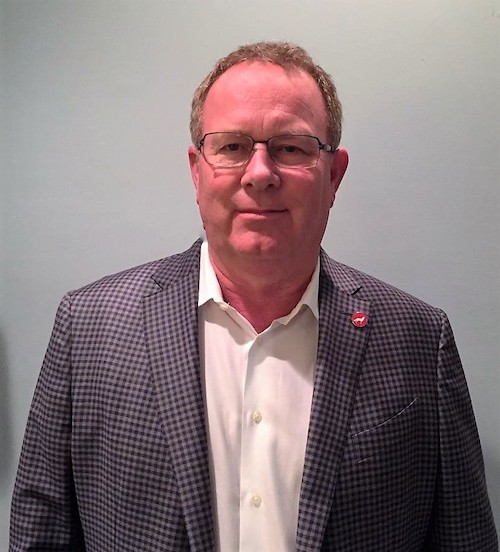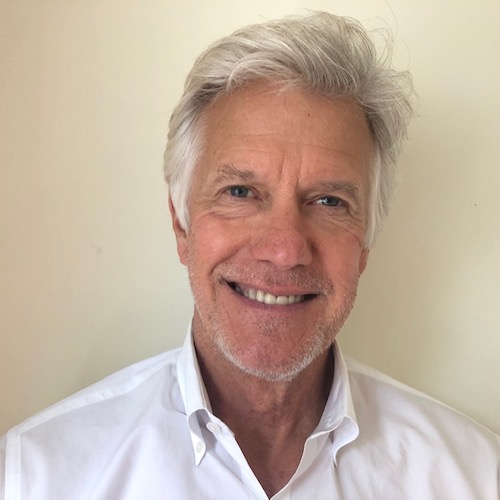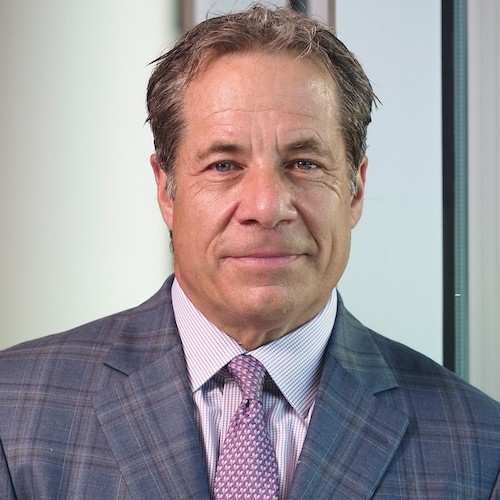Poole College Supporters Step Up for the Extraordinary Opportunity Scholarship Initiative

By Lea Hart
In February of 2020, North Carolina State University Chancellor Randy Woodson officially unveiled the Extraordinary Opportunity Scholarship Initiative (EOSI), calling on the university’s supporters to help provide even greater access to an NC State education for students in need.
In the time since, alumni, friends, faculty and staff at Poole College of Management have answered the call.
The EOSI will allow the university and Poole College to offer more need-based scholarships to students. As the largest university in the University of North Carolina system, NC State enrolls students from all 100 counties. The EOSI places a priority on extending educational opportunities to scholars from a wide spectrum of backgrounds by working to break down financial barriers for these students.
For every dollar, 50 cents gets matched. So, an endowment for $100,000 becomes $150,000.
More than 70 percent of NC State undergraduates apply for financial aid. Roughly half of the university’s undergraduates qualify for some kind of need-based aid, under federal guidelines. Support provided by donors through the EOSI goes directly to North Carolina residents with need. The donor is able to designate the scholarship for a specific college but not a specific program/degree. What’s more, the impact of a donor is amplified thanks to a matching gift from both named and anonymous donors with gifts totaling $5 million.
“For every dollar, 50 cents gets matched,” said Scott Manning, director of Development for Poole College. “So, an endowment for $100,000 becomes $150,000.
“It’s really a community approach to fundraising.”
The need for increased student support
In the midst of NC State’s Think and Do the Extraordinary Campaign, Manning said the chancellor noted a need among students for increased support. That support not only makes it possible for more students to attend NC State that might not otherwise be able to do so financially, but also helps NC State attract the best and brightest who may be considering other universities as well.
“These students have applied to other UNC system schools, and potentially out-of-state,” Manning said.
Where UNC-Chapel Hill’s endowment gives that university the ability to cover 100 percent of student need, NC State can cover about 75 to 80 percent of student need. NC State’s endowment is growing, but the EOSI is an effort to help close that gap, he said.
“It’s shedding a light on a gap that exists that I don’t think too many people knew about,” Manning said.
It also honors the land grant mission of NC State, recognizing it as a university meant for the people and students of North Carolina, he said. For students applying from rural, low-income areas, traveling to Raleigh and affording tuition, books and other expenses can be out of reach.
“These kinds of scholarships are impacting the most vulnerable student populations in a way that, in my opinion, will just add momentum,” Manning said, “Once we see these awards being made and the impact that they are having, that will inspire other donors to come to the table.”
Poole supporters step up for the cause: A look at a few who are supporting the EOSI
Recently, a few supporters of the EOSI and Poole College shared their stories, talking about their reasons for giving and their hopes for the cumulative impact on students and the college.

Mike Absher (’97) has been a long-time supporter of the university, including the Wolfpack Club. He and his wife, Jill Stocks Absher, also an NC State graduate (’97) and daughter of NC State graduate Bill Stocks (’65), both grew up in parts of the state where they witnessed the struggles of lower-income families – her extended family in eastern North Carolina and he in the foothills.
“As these universities become world class institutions, it’s getting hard and harder for middle class and low-income kids from North Carolina to make this work,” Absher said. “My wife and I connected those dots and decided we were going to support Poole.”
As these universities become world class institutions, it’s getting hard and harder for middle class and low-income kids from North Carolina to make this work,” Absher said. “My wife and I connected those dots and decided we were going to support Poole.
He graduated with a B.S. in Economics from Poole College and noted how instrumental his degree has been in his success as well.
“I’m hoping that we will help some of these kids that maybe wouldn’t have attended college, or maybe would have dropped out because of the cost, to see it through and find success,” he said.

Doug Doggett (‘83) knew from an early age that he wanted to go to work in his father’s construction business.
“When I went to college, I never contemplated anything else,” he said. “I liked the business and I liked the idea of continuing what my dad had started.”
Doggett obtained an associate’s degree from Wingate University and then transferred into NC State because he knew he could receive a combination of business and engineering education, taking civil engineering courses as electives while he pursued his BA in Business Management from the College of Management.
Today, he’s president of Doggett Concrete in Charlotte, and attributes much of his professional success to the education he received from NC State. That’s why it made sense to him to give back and support the success of the next generation.
“It’s really about being able to start out in their career with less or no student debt, and taking some stress off of a student so they don’t have to work multiple jobs while in school,” Doggett said. “They took that first step in deciding to go to business school, and to NC State – I look at it as helping them get started in life.”

George Jordan (’77) has NC State in his blood. His dad went to NC State in the 1940s and his uncle attended in the 1950s. His father was a real estate developer and Jordan followed in his footsteps, obtaining a business management degree from what was then the College of Management (now Poole College of Management).
Poole College’s success and elevation in the rankings makes it a beacon for students across the state, and he hopes to support that continued success.
“Poole has elevated itself,” he said. “And it’s a huge economic driver in our area.”
Jordan sees the EOSI as a way to help ensure Poole College continues to recruit and graduate the best talent who will contribute to the local and state economy, and to help those students that might not otherwise afford an NC State education. His mother grew up in Halifax County, now one of the poorer counties in the state.
“I want to support those people, and give other people opportunities who are not as fortunate as I’ve been,” he said.

Jim Scalise joined Poole College a few years ago after retiring from KPMG. He first built and taught a course, before recently becoming a full-time professor of practice for the college.
He and his wife have been active supporters and mentors with the Big Brothers, Big Sisters program locally and started to think about ways they could do more.
“We’re in a position in our life financially where we’re not worried about accumulating material things – that’s not what our mission is from here forward,” Scalise said. “The university was gracious enough to offer me a position as a faculty member and I thought, if I were going to provide a scholarship opportunity, it would be here.”
Seeking an opportunity that would help students over time, and in a significant way, Scalise decided to support the EOSI.
“We’re just trying to change one life at a time,” he said. “I think if a lot of people did that, you’d see big progress.”

Todd Yates (’89) put the entrepreneurial spirit of Poole College to work in his career. After working in business and industry for a number of years after graduating from Poole College with a degree in business management, he saw an opportunity to start his own company. Beginning with just two employees, Yates had more than 100 when he sold the company not too long ago.
“I think the biggest thing NC State did for me was to give me the place to mature myself, to build my network, and to develop critical thinking skills,” Yates said. “I learned how to ask questions and then really dig in and find the maybe not so apparent answers.”
Recognizing how important that kind of opportunity was in his life, he decided to support the university and Poole College.
“NC State is generally a school full of bootstrappers,” Yates said. “I was fortunate that my college education was paid for, but I know a lot of kids are not in that place.
NC State is generally a school full of bootstrappers,” Yates said. “I was fortunate that my college education was paid for, but I know a lot of kids are not in that place.
“I felt it was my duty to give back.”
Like Manning, Yates too sees the potential for others to be encouraged to step up and for future generations to pay it forward as well.
“It’s really a reinvestment back into our community,” he said. “I hope it will plant the seed for other people that will step up and help.”
This post was originally published in Poole College of Management News.
- Categories:


